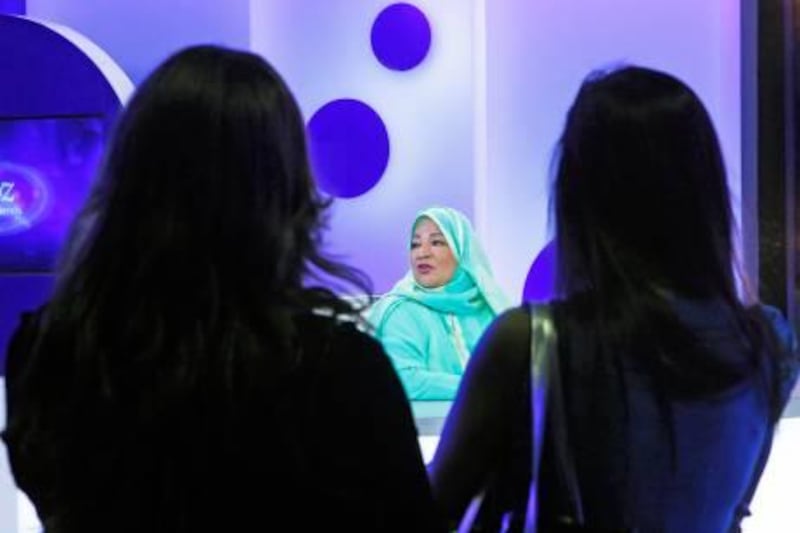DUBAI // The mood in the Media City television studio was tense as Dr Fozia Al Drei introduced the topic for discussion on the latest episode of her talk show.
Dr Foz & Friends, a live show on OSN Yahala! channel, opened the floor to a discussion of childhood sex education last Wednesday.
There was a sense of awkwardness among show's guests of Emiratis and Saudis as Dr Foz started. But the psychologist, sexologist and couples therapist from Kuwait is used to tackling sensitive topics.
"When parents are faced with questions about sex from their children, a majority do not have the scientific explanation for it," she said. "About 93 per cent of men and 82 per cent of women said they did not get an answer from parents about sex when they were young."
And more than 60 to 70 per cent of them said that incorrect information in their early years had affected their sex life, she said.
The guest speaker, Dr Ghassan Al Katheri, an Emirati father-of-two, admitted that he had already made that mistake with his own children.
"He said, 'I saw a naked picture' and began asking me all sorts of questions. I was hesitant and afraid, so I told him to go ask his mother," Dr Al Katheri said, before adding that he knew it was not the right way to handle the situation.
Instead, he said, parents should gauge the reasons behind the questions. "Make them believe it is a smart and important question and then use short and scientific terminology to explain sex-related topics. Avoid using words or nicknames to label body parts."
Dr Foz said sex education could begin from the age of 8. "When we give them the knowledge, be basic, but do not pass on negative messages about sex because it affects them later on," she said.
"Children are exposed to such things through the internet and TV shows, so it is our responsibility to give them the right information. Teach them to respect their body and be hygienic as well."
There is also a need to be frank when talking to children about sex to help prevent harassment and child abuse, experts agreed.
The show had 20 callers lined up by 11.30pm - perhaps a sign that Arab audiences are actually eager to address these taboo topics.
Khulud Abu-Homos, senior vice president of programming and creative services at OSN, said its feasibility study showed there was a need for such Arabic TV content.
"It's responsible edginess," he said.
Too edgy for some, perhaps.
Salama Sultan, a 23-year-old student from Al Ain, said: "If a child came up to me to talk about this, I would straight away ask them to stop and warn them against asking such questions."
She said she never received such information when she was young.
"People learn what they have to with time and there is no need to have specific shows or programmes to talk about it," she said.
Experts, on the other hand, supported Dr Foz. Samineh Shaheem, a cross-cultural psychologist at the Human Relations Institute in Dubai, said it was possible to present sex education to children while respecting the values of religion and local culture.
"If you do not talk about it, how will the child know that [sex before marriage] is not permitted?" she asked. "They may experiment and get into trouble, leading to deeper consequences."






